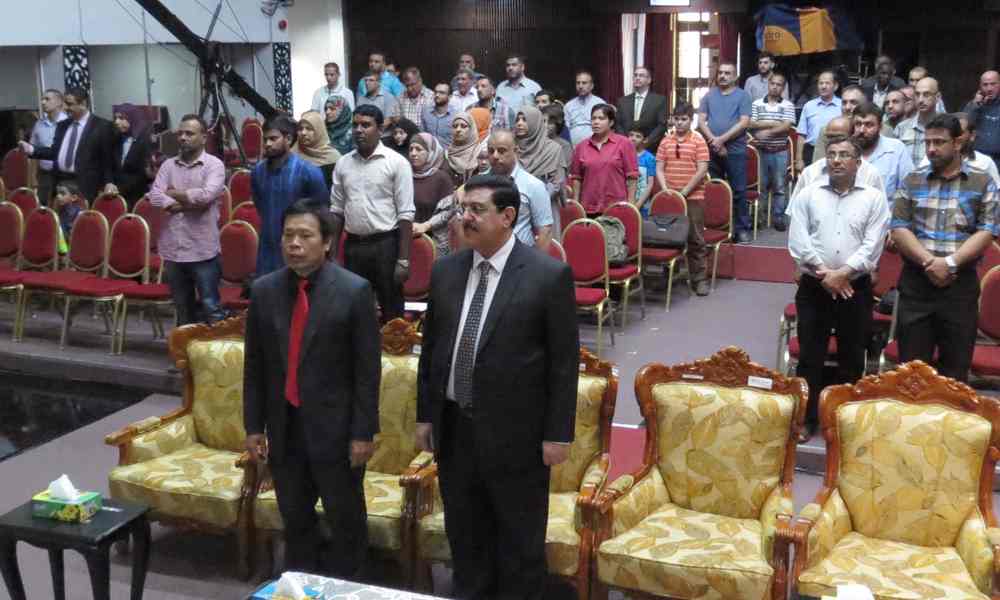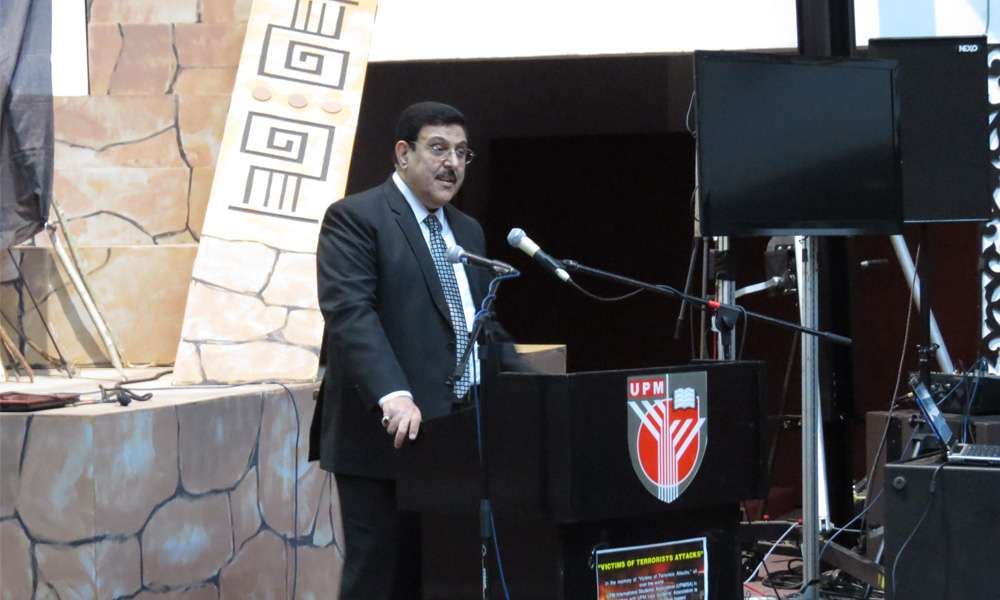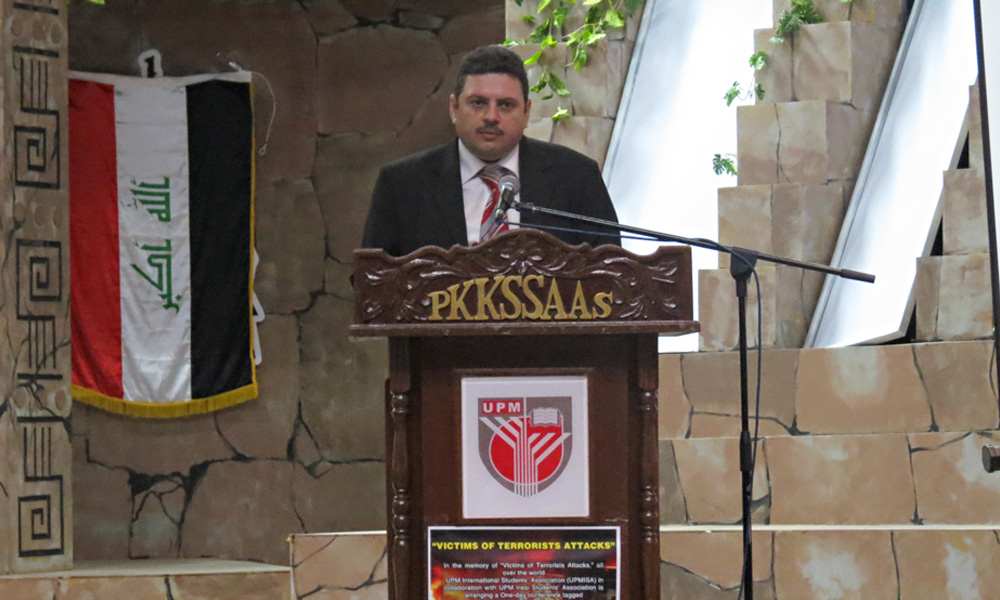UPM students stand against terrorism

Afterschool Team
August 24, 2016
International students at UPM gather to denounce terrorism and call for global harmony.
Serdang 23/4/2016: The Iraqi students’ association, in collaboration with UPM's international students’ association and the university authorities, organised a one-day event to commemorate the victims of terror attacks around the world and utilise this platform to discuss terrorism and terrorist ideologies.
The event was attended by Prof Dato' Dr Mohd Azmi Mohd Lila, Deputy Vice Chancellor (Research and Innovation) at UPM, the Ambassador of the Republic of Iraq, Prof Dr Basim Hattab Al Tumma, Dr Nor Aini Ab Shukor Deputy Dean SGS (Academic and Financial Assistance), UPM, Hassan Al-Haidari, Iraq embassy, and Orasa Abdullah, director of ELS Language Centre at UPM.
UPM students from different nationalities and backgrounds have attended the event representing their countries and expressed their support, standing against violence and extremism.
A word from the Iraqi ambassador, Dr Al Tumma, launched the event, followed by a speech delivered by Haider Fawzi, vice-president of the International Students’ Association at UPM, addressing the recent tragedies in Baghdad, in particular the Ramadan attack in July that claimed the lives of more than 300 people and injured hundreds more just days before Eid, a blood bath of innocent shoppers in the district of Karrada.
Md Abdul Bashir, a PhD candidate from Bangladesh studying business and economics at UPM, delivered a speech addressing issues associated with terrorist organisations operating under the umbrella of Islam, and using religion to appropriate their actions. Bashir had also spoken about the prohibition of violence in Islam and how Muslims should not be condoning such heinous actions and called for these evil-doers to be named as the enemies of humanity. He also called on Muslims to adhere and advocate for world peace and harmony. During his speech, Bashir touched on one of the most important aspects of the problem, which is represented by certain Muslim scholars who have been misinterpreting the teachings of Islam and actively misleading and brainwashing gullible Muslims and tricking them into carrying out evil deeds.
In another speech, Nasser M Habib, a PhD candidate from Iraq at UPM representing a group of activists, intellectuals and athletes, highlighted the important role of educated and intellectual Muslims around the world to call out the lies and deception of religious organisations like the Wahabi Movement and other groups who are fond of declaring Muslims who differ from them, apostates. Habib said that the Muslim world is in need for better education, revering of human rights, coexistence, protection of public and private property, and the eradication of terrorist ideologies.
It is absolutely important to engage international students in Malaysia in a dialog to discuss and share ideologies in an attempt to address the problem of terrorism that is on the raise worldwide. There are more than 150,000 international students in Malaysia who come from different backgrounds and are pursuing their higher education in Malaysia.
Back in July, and within the same period of time as the attack on Karrada, another attack took place in Bangladesh claiming the lives of 22 people. This attack wasn’t just closer to Malaysia geographically, it was linked to the country and one of the higher education institution in Malaysia. This time, one of the attackers was a former student at Monash University, Malaysia campus. Whether the Bangladeshi terrorist was radicalised in Malaysia, the attacks left Malaysia and its higher education institutions under the spotlight.
Malaysia, as a nation, is working hard to keep extremists under control and monitors suspicious activities that may turn into acts of terrorism. That is why it is important to get the international student community in Malaysia engaged and well-equipped with the intellectual capacity to face off individuals who may attempt to mislead and deceive anyone in Malaysia and keep the nation safe.
The organisers of the event at UPM hope to make this an annual gathering and wish to see a significant growth in the number of participants and attendance. Organisers hope to receive further support from the authorities and bring the event to all institutions across Malaysia. The event featured video presentations and a display of images and drawings of locations and victims of terror attacks.





